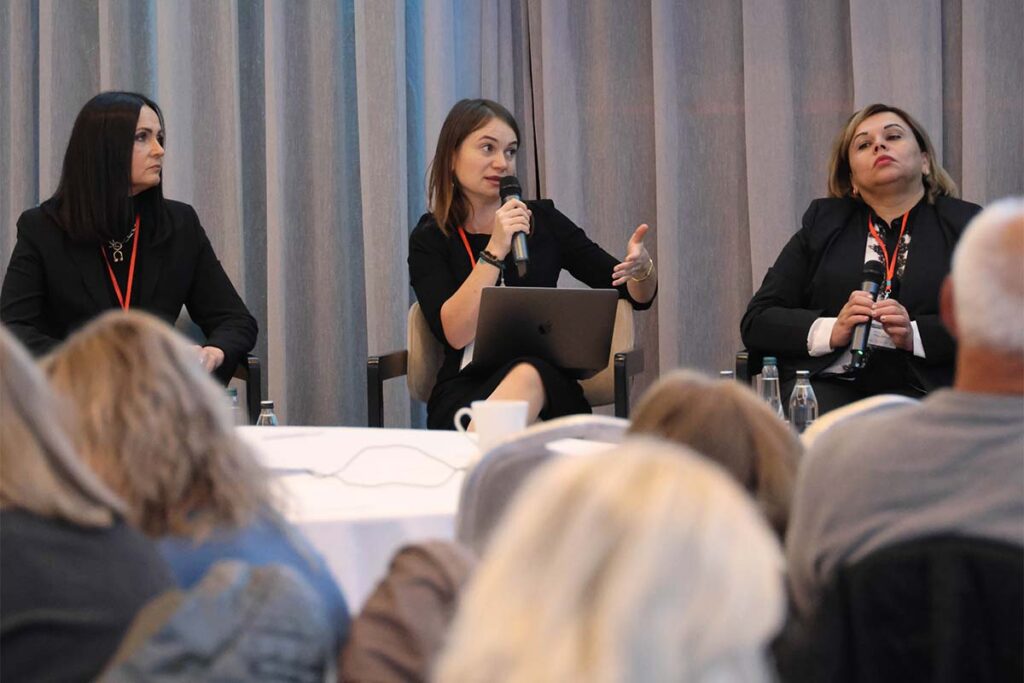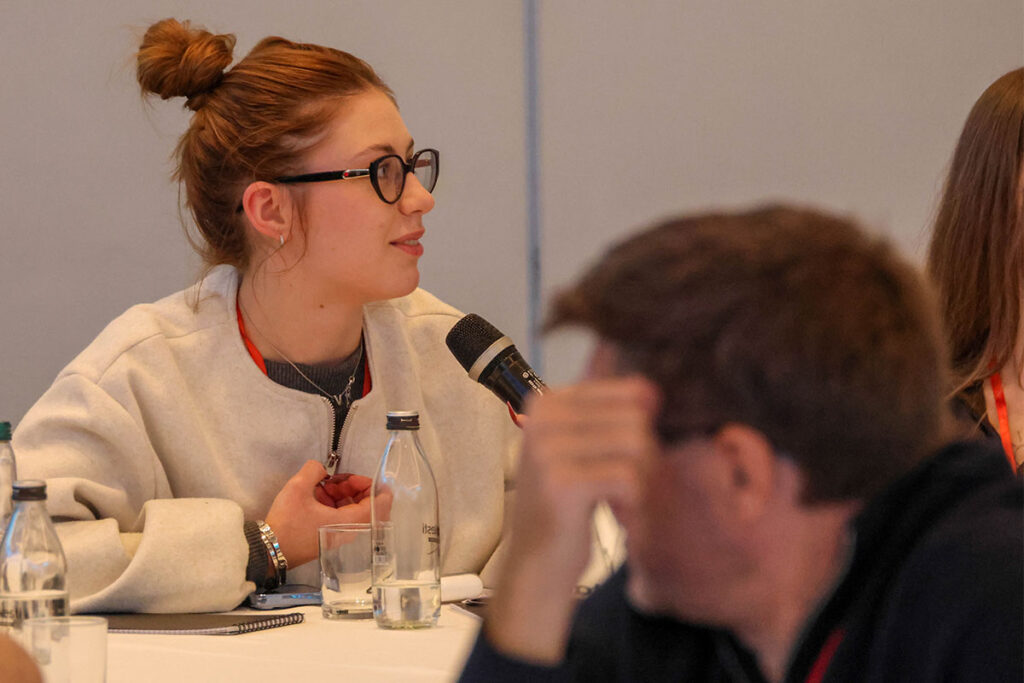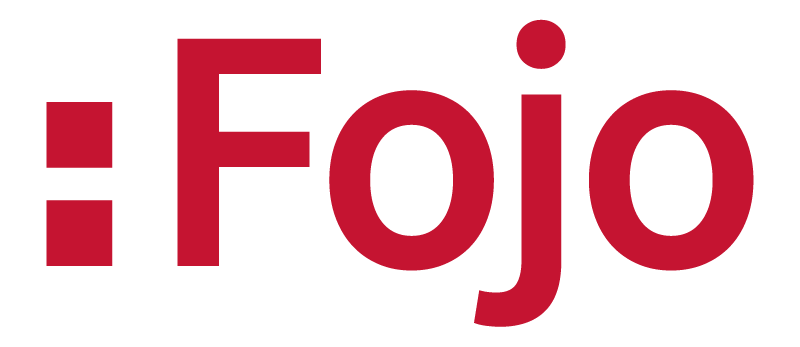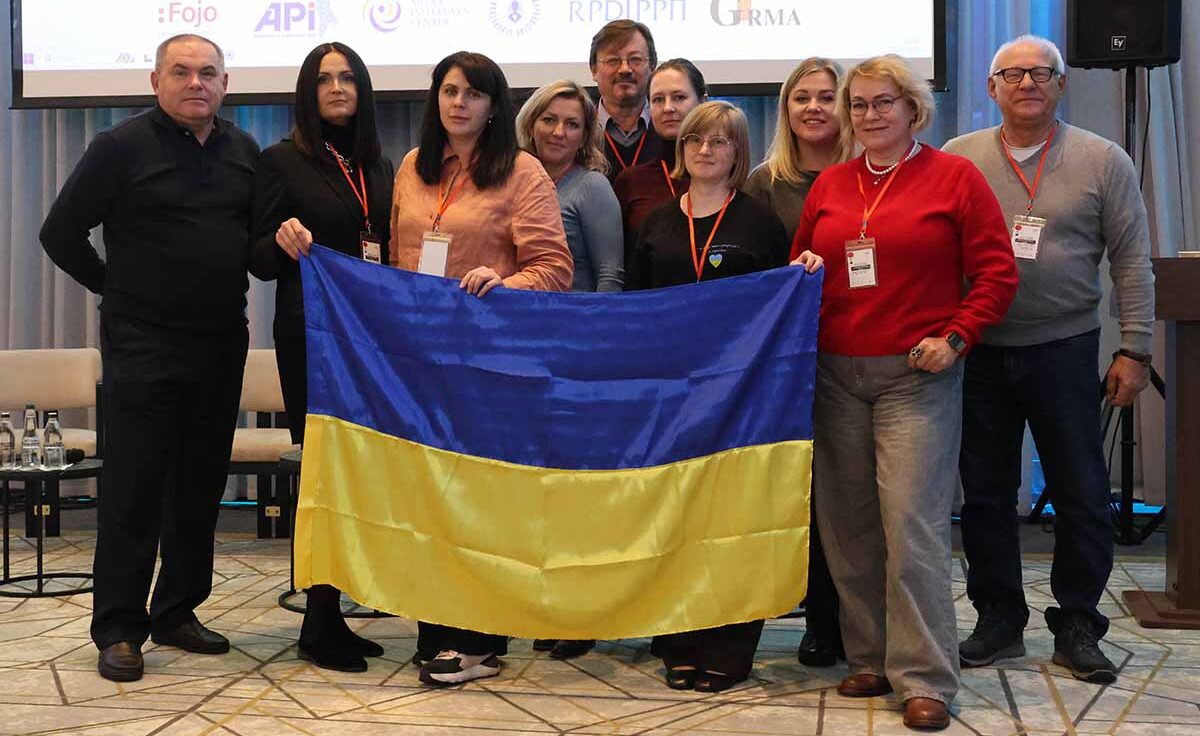Just two days after Moldova’s presidential election, media managers from across the region gathered to share resilience strategies amid political crossroads. In the face of challenges and a pivotal moment in time, choosing between East and West, modernity and tradition, a single question echoed throughout the gathering: What keeps you going? “I want my editor, when he’s released from prison, to know that I didn’t let him down,” was the answer from one Belarusian journalist.
“Practitioners to practitioners. Management, technologies and well-being. Quo Vadis?”.
On October 22-23 Fojo Media Institute gathered media professionals from Armenia, Georgia, Moldova, Ukraine and exiled Belarusian media for a fifth international conference. The conference was organised in cooperation with Fojo’s partners across the region and with financial support from the Swedish Institute.
“Why now and why here?”
When the conference plans were announced, some questioned the timing.
“Why now and why here?” and “are you really going to Moldova right after the election?” But Fojo remained confident, trusting the assessment of its Moldovan partners, the Association of Independent Press (API). This confidence proved well-founded: a second round of elections was announced, with no candidate securing a clear majority*, and Moldova narrowly voted to join the EU.
Given these developments, there was no better place and time to explore this year’s theme, “Quo Vadis?”, or “Where are you going?”, as media professionals from diverse, turbulent regions gathered to share insights on navigating challenges that are political, personal and professional.
A region at a crossroads
The conference began with updates from each country, illuminating how the question – “Where you are going?” – holds urgent relevance for media across the region. Georgian journalists described working amid a polarised political landscape, facing physical threats, public harassment and new legislation on foreign agents, the so-called “Russian law.” Armenian managers spoke of financial difficulties and the ongoing trauma in the aftermath of recent war and displacement of Armenians from Nagorno-Karabakh – a wound still too raw to discuss without strong emotions.
Belarusian journalists in exile recounted life under a constant shadow of financial insecurity, the struggle to retain their audience, find ways to work in a new country, and practical challenges like renewing residence permits and crossing borders. For those who remain in Belarus, the risks are even higher; currently, 33 journalists and editors are behind bars and repressions continue. For Ukrainian journalists, the threats are even more tangible as newsrooms operate under literal bombardment, often without power or reliable internet. Ukrainian media outlets are understaffed and the workload is higher than ever, not to mention the physical safety risks for those working on the frontlines.
Moldovan journalists face significant challenges from Russian-backed disinformation campaigns aimed at swaying public opinion against the EU and supporting pro-Russian sentiments. This influence often spreads through media owned and financed by oligarchs. Financially constrained local media often face formidable competition from well-funded misinformation channels.
Each story underscored the shared reality in which journalists work with steadfast resolve amid volatile environments, threats and active conflict.
Turning to solutions: leveraging AI, ensuring mental health
Over two days, discussions shifted towards practical strategies for survival and resilience. In a session on AI, participants explored ways to leverage technology to ease workloads, handle data collection, translation services and perform routine tasks in newsrooms struggling with limited staff. Resilience was also understood in terms of crisis management, financial stability and mental well-being — areas where the human cost of journalistic dedication often becomes painfully visible.
In these challenging conditions, financial survival is paramount. Yet very few media outlets in these countries can sustain themselves without external funding, though there are inspiring exceptions. For example, a Ukrainian network of local media, which would likely thrive in peacetime, operates under wartime duress while exploring new possibilities; an Armenian outlet has created diverse, revenue-generating services to maintain financial stability; and some Georgian media, traditionally reliant on external support, are experimenting with inventive approaches to diversify their revenue streams.
These examples reveal not only the scale of the challenges but also the ingenuity and dedication fuelling media resilience.

Mental health: breaking the silence
The most intense discussions, however, focused on the people behind the stories — the journalists themselves.
Mental health remains a sensitive topic, with stigma being especially strong in the Caucasus, where seeking professional help is still rare and family members often take on the role of counselor.
“I want my editor, when he’s released from prison, to know that I didn’t let him down.”
– Belarusian journalist
A Belarusian journalist, now in exile, shared her journey to keep her publication alive after her editor-in-chief’s arrest. When asked, “What keeps you going? Why not give up?” she answered firmly, “I want my editor, when he’s released from prison, to know that I didn’t let him down.” Her response left the room in silent reflection.
In Moldova Fojo’s impact was tangible. Through a recent programme, Fojo enabled its partner organisation, API, to establish Moldova’s first psychological support hotline for journalists. This initiative grew from Fojo’s 2021–2022 project aimed at improving working conditions for journalists in nine countries, including Moldova. Initially, female journalists used the hotline most frequently, but over time, male journalists also began seeking support, signalling a slow yet crucial shift in the perception of mental health. The project has since been scaled up and continues today with financial support from Deutsche Welle.
However, the challenge of accessing support is widespread; most journalists in these countries cannot afford the assistance they need on their own. While support is offered from time to time in the participating countries (except Georgia) —ranging from security workshops to self-help trainings and retreats—convincing donors of their critical importance is not an easy task. This should be evident, as a media organisation is only as strong as its people. Although technical solutions can provide some relief, the overall quality and credibility of journalism ultimately hinge on the well-being of staff, both mentally and professionally.
But not everything requires money. A Georgian journalist shared how much a simple question from her colleagues – “How are you? Can we help you somehow?”- helped her navigate a very challenging period in her life. In this way, peer-to-peer support within the media can be a powerful way to break the isolation that often accompanies personal struggles.
Redefining resilience in a changing culture
For decades, newsroom culture globally upheld the idea that journalists must “tough it out” or find another line of work. Today, however, a profound cultural shift is underway, particularly as journalists confront unprecedented challenges and heavy workloads. As a Belarusian speaker pointed out, “If we did not offer psychological support to journalists, they would literally fall apart. No one can withstand this kind of mental pressure alone.”
This time, discussions about mental health and well-being were more candid than ever, with a collective understanding that a sustainable media sector relies equally on journalists’ mental health as it does on funding, technology, and physical safety.
At the conference’s conclusion, attendees were invited to share their thoughts. A female participant stood up and, for the first time publicly, recounted her struggles: from battles with censorship to facing harassment and threats, leading to physical and mental burnout. Her recovery was arduous, made more challenging by a lack of support and solidarity within her professional circles. Today, however, she is training as a psychologist, determined to help her colleagues navigate the very challenges she endured. Her story stood as a powerful testament to the resilience and courage at the heart of this profession.

Going back, standing strong
As participants packed up to return to their newsrooms, the weight of the coming challenges was evident. They were heading back to places where hostility toward the media persists, where threats are constant, where the future is uncertain and political pressures continue to mount amid geopolitical tensions. Yet, we believe they departed with new tools, strategies and an enduring sense of solidarity. United by shared purpose, these journalists – who refuse to abandon their mission despite adversity – will continue to tell stories that matter.
In this context resilience is more than a word. It’s a daily reality for many driven by the belief that the work of the independent media has meaning. No matter the cost.
The project is carried out with the generous support of the Swedish Insititute.
* On November 3, pro-EU leader Maia Sandu won in a tight run-off.



